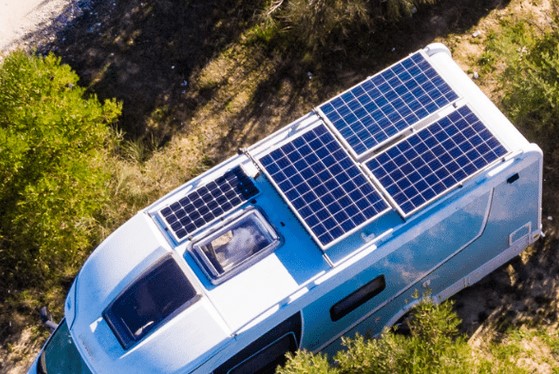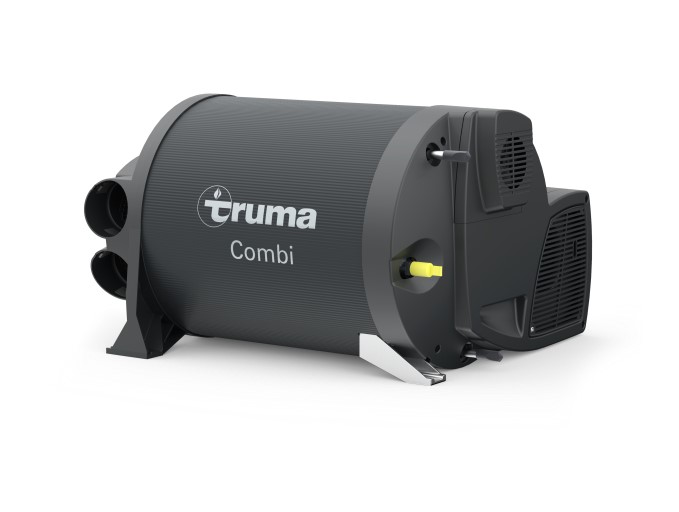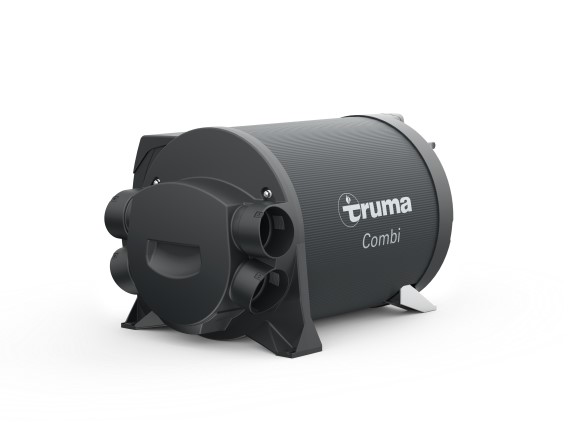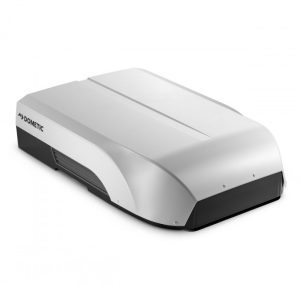I need an AC for my caravan. What are the main differences between the AC units available?
Most of the air-conditioning units built for the RV market fall into 2 categories – Roof-top models and Under-bunk units.
As you would expect the Rooftop units mount on the roof releasing cold air which is blown from the ceiling mounted ‘plenum’ or ADB (air distribution unit). The main unit is ‘out-of-the-way’ in that it is not inside the RV taking up valuable space. Note – ensure you do not damage it with low hanging branches etc.
Examples include Dometic Freshjet Series 7 Plus , Truma Aventa Comfort and Houghton Belaire 3400 units.
The Under-bunk units are installed inside your caravan or RV – either under a bed or inside a cupboard and ducting is used to blow the cold air around the inside space. Whilst these units are compact they do occupy space inside the RV which may be a consideration.
Examples include the the Truma Saphir and Houghton Belaire HB9000 units
Do caravan AC units run on 12 volt or 240 volt power?
All the main caravan AC units require 240 volt power to operate them – except one product called a Dometic Coolair RTX Truck Cooler that runs on 24v power. This is more suitable for trucks when the engine is running for most of the time.
For the 240 volt AC units you will need a provision for running a 240 volt cable to the AC unit for power – eg if it is a roof mounted unit. As a 240 volt appliance make sure only a Certified Electrician does the installation.
Other factors to consider are whether you will want to use the AC unit when you are remote camping – in which case a generator will normally be required and you will need to make sure the generator is capable of starting the AC unit – some AC units have low start up currents to help with this. Also note generators are not permitted in some national parks – the rules vary with each State so check on their National Parks website.
Can I use a household AC unit for my Caravan?
Specialist Caravan AC units are designed to withstand the constant vibration when travelling in your home away from home and not to leak in the range of weather conditions they encounter.
Split level units used in houses may be applicable for a static van on a site but they are not really designed for being on the road in all weathers so best to go with a product designed for the job.
Do all AC units provide heating as well as Cooling?
All major brands of caravan AC units provide heating as well as cooling as they are reverse cycle units and use a compressor to either transfer the heat from external to internal (as in heat mode) or transfer the heat from Internal to external (as in cooling mode). Some of the older models had a heating element which was less efficient in terms of energy consumption.
What size of AC unit do I require?
The capacity of an AC unit is specified in terms of a Cooling Capacity in Watts and Heating capacity in Watts. The cooling capacity ranges from 3500 Watts for the Houghton Belaire HB 3500 unit, 3400 Watts with the Dometic Harrier Plus unit to approx. 2400 -2600 watts for the Dometic Freshjet Lite , the Houghton Belaire HB2400 and the Telair Ice S2800.
As a general guide a unit with 2500 watts of cooling capacity is suitable for a medium sized van up to approx. 4-5 metres long and the larger units are recommended if your caravan or motor-home is 6 metres or above.
Note that the effectiveness and efficiency of the AC unit will also be determined by the factors listed in the question below
What can I do to enhance the performance of my AC or Heating Unit?
Similiar to a house, keeping the inside of your caravan or motor-home cool (or warm in the winter) will depend on a number of factors other than which AC or heater unit you choose.
The materials used in the caravan build are important, as are the after-market items that can be used to protect the van from the elements.
- For new builds – The R value of the walls themselves and the roof are critical – how well insulated is the van – Is it made from composite panels or timber framed with tin or metal cladding that can hold the heat?
- Is your floor insulated? – this can also make a huge difference especially in the cold nights.
- Are the windows double glazed? Our most popular brands have double acrylic glazing to minimise heat transfer such as the Eurovision, Eurovision 2 and Dometic S7P windows.
- Is the roof covered with solar panels? As well as generating power the panels will maintain the actual roof itself at a lower temperature in full sun and the space between the panels and the roof will help keep it cool.

- Do you use shade cloths to keep the afternoon sun off the RV or caravan walls?
Also your camping location will make a difference – in a valley it will be colder in the winter nights and exposure to winds may be a positive or negative factor depending on the season.
I need to replace my Roof AC unit – Will any model fit?
There are a few items to consider with changing a rooftop AC unit:
- Rooftop AC units are generally designed for a 400 x 400 mm roof hole size – which originates from Europe – or a 360 x 360 holes size – originates from USA. You may need an adaptor if your roof hole size is 400 x 400 and your AC unit is 360 x 360 or vice versa.
- Bear in mind for new AC installs the roof needs to be strong enough to carry the weight of the AC unit over many years. Some manufacturers use a steel frame to reinforce the AC area whilst composite panel manufacturers will install panel insertions either side of the AC hole designed to carry the weight and also provide a conduit for the 240 volt cable.
- Also make sure the roof thickness (mm) can be accommodated by the AC unit you select
- Check the clearances both on the roof itself for the roof-top unit and in the ceiling for the plenum or air distribution unit. AC units vary in where the hole is relative to the product itself and if you have eg solar panels on the roof you may need to move them for a different AC model.
- And finally but most importantly as a 240 volt appliance – ensure ONLY a suitably qualified electrician does the install.
What to consider for a suitable caravan heater ?
This will depend on your circumstances – the best caravan heater for you may depend on the following points –
- Do you also require an air-conditioner unit – if so, it would be cost effective to purchase a unit that provides cooling and heating. Note – if you need heating at night you will need 240 volt mains power
- How do you heat your hot water? If you have an instantaneous hot water heater this does not apply but if you want some stored hot water there are efficient units available that heat the water AND the room at the same time. If your preferred fuel is LP Gas there is the Truma Combi E4 and if you use diesel there is the Truma Combi D6 unit.
- When do you intend to travel? Do your plans mean you need substantial heating at night as you will be travelling in cold weather – consider a gas or diesel room heater capable of up to 4000 watts or 6000 watts of heating respectively such as the Truma Combi E4 (gas) or the Truma Combi D6 (diesel) unit. This compares to 2000- 3500 watts for a rooftop unit. If you have a diesel vehicle (eg motor-home) you will already have a diesel storage tank – otherwise you can install a small dedicated diesel tank for just the heater unit.




